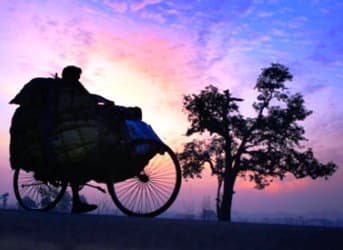In the state of Jharkhand, eastern India, most families used to survive by foraging in local forests, or growing crops on farmland, but after 40 years of coal mine expansion, and deforestation, 67% were left landless, and of those who were left with any farm land, only 22% had as much as an acre.
Then as the coal industry grew, its demand for water increased, leaving locals with insufficient water to grow crops in the few fields left to them.
Ram Prakash Chaudhury, the representative of the district of Ramgarh in Jharkhand’s state assembly, stated that the “people don't have an alternative but to steal from the mines. Before, people could buy coal from a Coal India depot in small amounts. But now [coal] supplies just go to industry.”
Related article: Turkey’s Declining Coal Industry
Coal mined in the states coal fields are dispatched direct to power stations, steel mills, and India’s other giant corporations, leaving locals unable to legally buy coal on the market.
But in a typically Indian fashion, the villagers have found a solution.
Local women illegally work at the coal washery next to the mines, sifting through rocks discarded by the whirring conveyor belts, in search of any smaller lumps of coal that may have fallen through. Once gathered they then carry the illegal coal to a makeshift coking site where the cook off some of the ash and make the coal cleaner, and therefore more valuable.
Men, known as coal cycle wallahs, then collect the coal at a separate handover spot near to the edge of the mine. They tie huge bags of coal to their bikes, and begin a long journey, often travelling at night to avoid the heat of the sun, to take their coal to market.

A coal cycle wallah. (oitzarisme)
The cycle wallahs push their bikes for up to 90 miles, laden with anything from 150 to 450 kilograms of stolen coal; the heaviest loads may even weigh as much as a 1.5 tonnes, and be pushed by two or three men. At the market the coal can fetch 1 rupee per kilo.
Related article: The Hidden Opportunity in Asian Coal
ADVERTISEMENT
The Guardian claims that this shadowy energy supply network helps to keep brick kilns, sponge-iron factories, roadside food stalls supplied with energy, and families in cities and villages alive. Around 45,000 coal cycle wallahs transport 7.5 tonnes of coal a day form the mines to market in Jhakhand alone, making them India’s largest criminal organization.
By. James Burgess of Oilprice.com


















